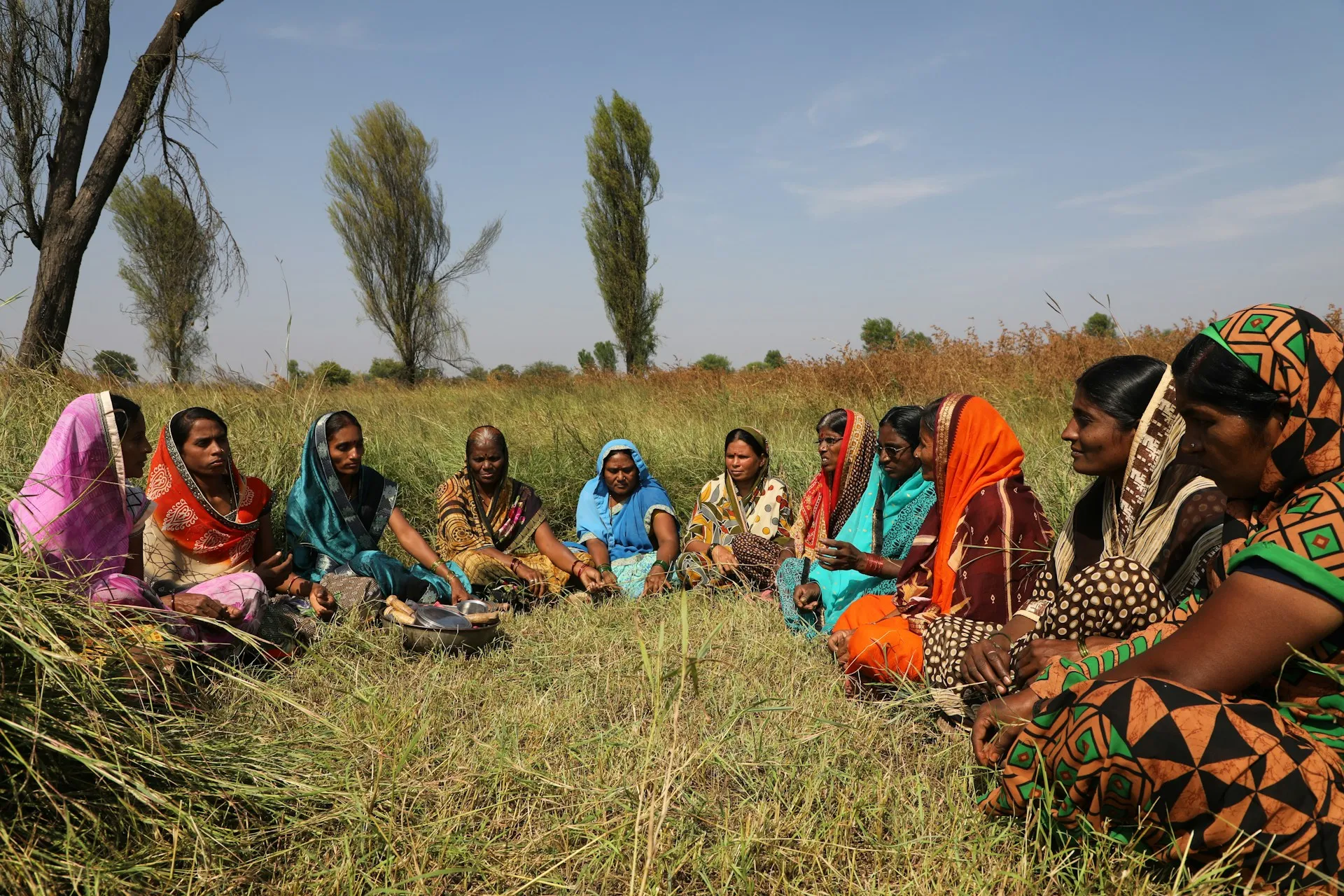International Women’s Day: accelerating action through humanitarian research and innovation on gender-based violence

To mark International Women’s Day, Ian Brightwell, our Innovation Manager focussing on gender-based violence (GBV), shares his reflections on how humanitarian research and innovation contribute to this year’s theme.
This year’s theme for International Women’s Day is Accelerate Action. It comes at a time when defending women’s rights feels as urgent as ever. This year also marks significant anniversaries for women’s rights and equality: 30 years since the landmark Beijing Declaration and Platform of Action and 25 years since the United Nations’ (UN) Security Council Resolution 1325. At Elrha, it is ten years since we selected GBV as one of the focus areas of our work on humanitarian research and innovation.
The Platform of Action, developed at the 1995 World Conference on Women in Beijing and later adopted by the UN General Assembly, identified among its top priorities: women’s protection from violence, protection in armed conflict, and control of their own health, especially their fertility. Five years later, Resolution 1325 (2000) stressed the importance of women’s equal participation in peacekeeping and security, as well as the value of understanding the impact of armed conflict on women and girls, and their right to legal protection during and after conflict.
Decades later, these priorities remain salient and align with some of the opportunities for innovation identified in our GBV gap analysis. For example, our analysis highlights the need for innovative action that:
- engages women and girls affected by crises, in developing their own GBV risk mitigation plans;
- supports security actors like the police to provide survivor-centred services; and
- supports community-based and women-led organisations to lead locally designed GBV prevention programmes.
Research and innovation as an accelerator
One effective pathway to accelerate action for women in humanitarian crises is through strategic humanitarian research and innovation. Not just for women, but for all people affected by crises and across the humanitarian sector, we find ourselves responding to today’s challenges with yesterday’s tools. As stated in our strategy, the pace of change is too slow.
Since 2015, at Elrha we have specifically directed some of our support for humanitarian innovation towards addressing GBV in emergencies. As we join all those who are marking International Women’s Day, I want to highlight some of the innovations we have supported. These are tools that take action, can accelerate to scale, and hold potential for far-reaching positive impacts for women.
MediCapt is a survivor-centred, trauma-informed software and training package designed to strengthen justice and accountability. It enables clinicians to methodically gather and securely store forensic information (photos and medical notes) from survivors of GBV and torture. We supported work on MediCapt, led by Physicians for Human Rights, through our scaling fund: Accelerating the Journey to Scale. Since 2020, MediCapt has been used to document thousands of cases of GBV in the conflict-affected east of the Democratic Republic of Congo (DRC) and in Kenya. The current situation in the eastern DRC is grave, with healthcare workers reporting a massive influx of cases of conflict-related sexual violence among adults and children amid spiralling conflict. However, of the first 55 MediCapt-documented cases that reached a judicial decision in DRC, 49 received positive judgements. Following our support, Physicians for Human Rights are now working to scale MediCapt into other conflict zones.
ARCHES (Addressing Reproductive Coercion in Health Settings) is a harm-reduction intervention designed to help women use family planning methods without interference. With our support, Ipas Bangladesh successfully adapted and tested ARCHES in refugee camps in Bangladesh, and found that it improved Rohingya women’s control over their own health choices. Based on the strength of their adaptive innovation project, Ipas have gone on to access other humanitarian funding and have reached over 20,000 refugee women and girls in the first two years. We are now supporting Ipas to tailor the intervention for delivery by community health workers, further addressing a common challenge faced by persecuted and conflict-affected people, namely a lack of access to healthcare facilities.
Understanding the impact: we are also supporting innovative ways of understanding the impact of conflict and humanitarian crisis on women and girls. One example is the use of sensemaking to gather and analyse thousands of stories of women’s experiences of GBV in complex emergency settings, without directly asking about this often-taboo topic. This approach is summarised in our pitch video. Elsewhere, members of the Red Cross and Red Crescent Movement are developing a very different approach to increasing understanding. Using a carefully crafted, survivor-informed story, they are testing how the immersive experience of virtual reality can help humanitarian workers in Iraq better understand the impact of GBV on women in conflict settings.
To find out more about our work on gender-based violence and to keep informed of all our latest research, events and funding opportunities, sign up to our newsletters, or for more information about specific innovations addressing GBV, get in touch by email [email protected]
Stay updated
Sign up for our newsletter to receive regular updates on resources, news, and insights like this. Don’t miss out on important information that can help you stay informed and engaged.
Explore Elrha
Learn more about our mission, the organisations we support, and the resources we provide to drive research and innovation in humanitarian response.